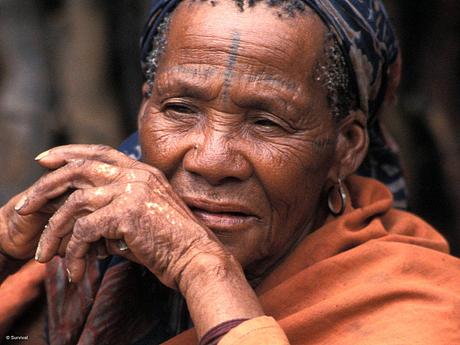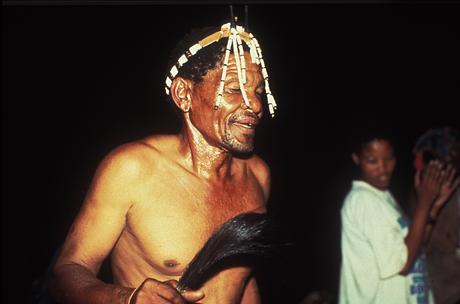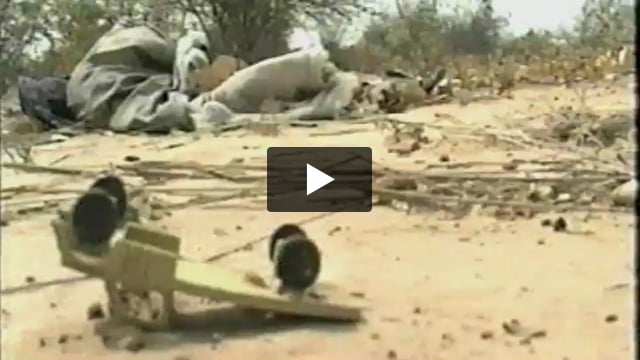Wikileaks: US embassy condemned eviction of Kalahari Bushmen
January 20, 2011

This page was last updated in 2011 and may contain language which is now outdated.
The US Ambassador to Botswana strongly condemned the government’s forced eviction of the Kalahari Bushmen, according to secret US embassy cables released today.
Ambassador Joseph Huggins told his bosses in Washington in 2005 that the Bushmen had been ‘dumped in economically absolutely unviable situations without forethought, and without follow-up support. The lack of imagination displayed… is breathtaking.’
He concluded by saying, ‘The special tragedy of New Xade’s dependent population [i.e. the Bushmen in the relocation camp] is that it could have been avoided.’
Botswana’s government forcibly evicted the Bushmen from their ancestral lands inside the Central Kalahari Game Reserve in 2002. The Bushmen were dumped in government relocation camps outside the reserve where HIV/Aids, alcoholism, and other problems previously unknown to the Bushmen are rife.
After visiting New Xade relocation camp, Ambassador Huggins noted ‘despair among youth’. The cables also reveal Huggins’ frustration with Botswana’s then Permanent Secretary in the Ministry of Foreign Affairs, Ernest Mpofu. Having suggested that the government reconsider its approach to the Bushmen, Huggins found that Mpofu ‘dismissed all such suggestions’ which were ‘met with thinly veiled scorn’.
The cables also detail Huggins’ discussions with a representative of a local NGO who criticized the government for ‘the lack of consultation, and the lack of transparency in decision-making when it came to the treatment of [the Bushmen]’. The representative, who has not been named, also told Huggins that Bushmen ‘are systematically being discriminated against by the [government], which moves them away from wherever there might be an income-generating opportunity’, and that they ‘believed that plans for mining were the reason that the [Bushman] groups were removed’.
Following the evictions, the Bushmen took the government to court in a legal battle that became the longest and most expensive in the country’s history. In a landmark ruling in 2006, Botswana’s High Court ruled that the evictions had been illegal and unconstitutional and that the Bushmen have the right to return to their lands.
However, despite the ruling, the government has continued to make life in the reserve impossible for the Bushmen. It has banned them from accessing a well which they rely on for water and which they used before the government sealed it in a bid to force them off their lands.
The Bushmen launched further litigation against the government in a bid to gain access to their well. A High Court judge dismissed their case in 2010, expressing sympathy with the government, and an appeal hearing was held on Monday. The ruling will be delivered on either 27th or 31st January.
The day after the hearing was held, Gem Diamonds announced that the Botswana government has issued it a licence to open a diamond mine at one of the Bushman communities inside the reserve. While the government had always maintained that the concession was sub-economic, Gem Diamonds values the mine at $3 billion.
Survival’s director Stephen Corry said today, ‘Yet again, the Botswana government is shown to have been behind needless suffering, scorn, discrimination, and even death, for its most deprived citizens, the Bushmen. This is not just the opinion of some human rights activists and the Bushmen themselves, it is a matter of fact as reported by the US government. However much wealth they bring to the few, diamonds should not be bought at the cost of the destruction of these Bushman peoples’.




